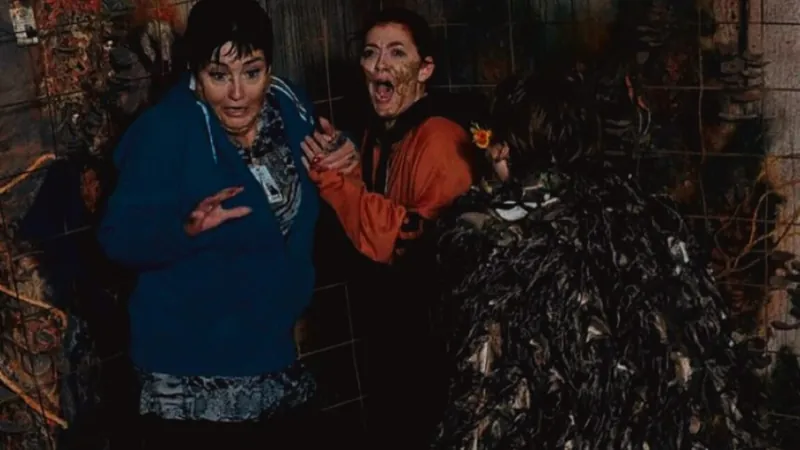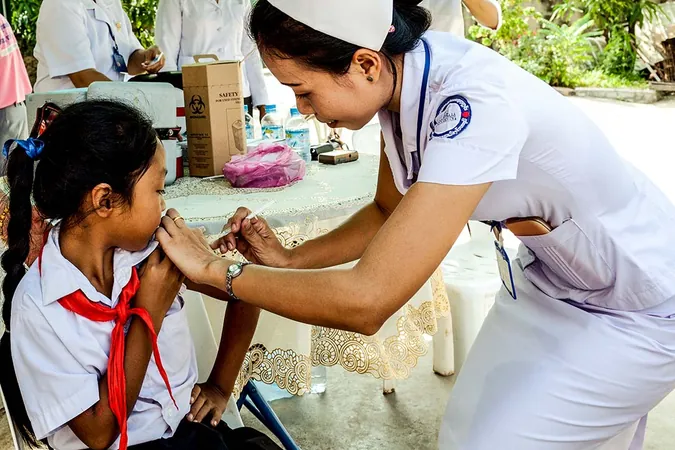
Can A Thrill at a Haunted House Actually Strengthen Your Immune System? The Spooky Truth Revealed!
2024-11-19
Author: Sarah
The Spooky Truth Revealed!
As Halloween has faded into memory, new research suggests that brave souls who ventured into haunted houses during the spooky season may have inadvertently given their immune systems a boost! A groundbreaking paper published in the journal *Brain, Behavior, and Immunity* has unveiled an intriguing connection between fear, excitement, and immune response.
Traditionally, fear is seen as a negative emotion—a survival instinct alerting us to danger. Yet, there is an undeniable allure in the thrill of horror, from spine-chilling movies to terrifying haunted attractions. This phenomenon has been aptly termed "recreational fear," where individuals experience a blend of fear and enjoyment. Engaging in such activities can evoke a "mixed emotional experience" that many seek out voluntarily.
Mathias Clasen's Research
At the forefront of this fascinating study is Mathias Clasen from Aarhus University, who has extensively researched the nature of horror fandom. Clasen’s work examines how individuals respond to fear, categorizing them into "adrenaline junkies" who embrace the fear and "white-knucklers" who resist it. This duality was explored in previous studies, revealing how different personalities react to the thrills in haunted attractions like the Dystopia haunted house in Denmark, known for its immersive, spine-tingling experiences featuring everything from zombies to menacing clowns.
The Latest Investigation
In the latest investigation, Clasen and his team recruited a new batch of volunteers between September and November 2023, maintaining a similar methodological approach as in past studies. Participants underwent blood testing before, immediately after, and three days post-visit to assess levels of C-reactive protein (CRP)—a vital marker for immune response—alongside the development of immune cells in the bloodstream. The results were enlightening.
While no significant changes in low-grade inflammation were observed, many participants exhibited impressive reductions in high-sensitivity CRP (hs-CRP) levels after facing their fears, especially those who initially presented with low-grade inflammation. Interestingly, the number of white blood cells, known as leukocytes, decreased after their frightful experience, supporting the hypothesis that engaging with fear in a recreational context may actually lessen inflammation.
Caution and Considerations
Clasen humorously remarked, "It looks like it might be beneficial for physical health to be chased by a guy with a chainsaw." However, caution is warranted. The study acknowledged a multitude of variables—such as participants’ exercise habits, diet, and psychological conditions—could have influenced the measurements. Additionally, while the team was thorough in excluding those exhibiting active infections, they encountered limitations in comprehensively assessing demographic and lifestyle factors.
Conclusion and Future Research
Despite these challenges, the authors concluded that recreational fear might have a positive relationship with our immune systems. They emphasized that future investigations should delve deeper into the physiological mechanisms at play, particularly the role of the adrenergic system, to validate and expand upon these initial findings.
So, the next time you plan a visit to a haunted house, remember—getting scared silly could have surprising health benefits. Just make sure it’s not *too* scary!


 Brasil (PT)
Brasil (PT)
 Canada (EN)
Canada (EN)
 Chile (ES)
Chile (ES)
 España (ES)
España (ES)
 France (FR)
France (FR)
 Hong Kong (EN)
Hong Kong (EN)
 Italia (IT)
Italia (IT)
 日本 (JA)
日本 (JA)
 Magyarország (HU)
Magyarország (HU)
 Norge (NO)
Norge (NO)
 Polska (PL)
Polska (PL)
 Schweiz (DE)
Schweiz (DE)
 Singapore (EN)
Singapore (EN)
 Sverige (SV)
Sverige (SV)
 Suomi (FI)
Suomi (FI)
 Türkiye (TR)
Türkiye (TR)